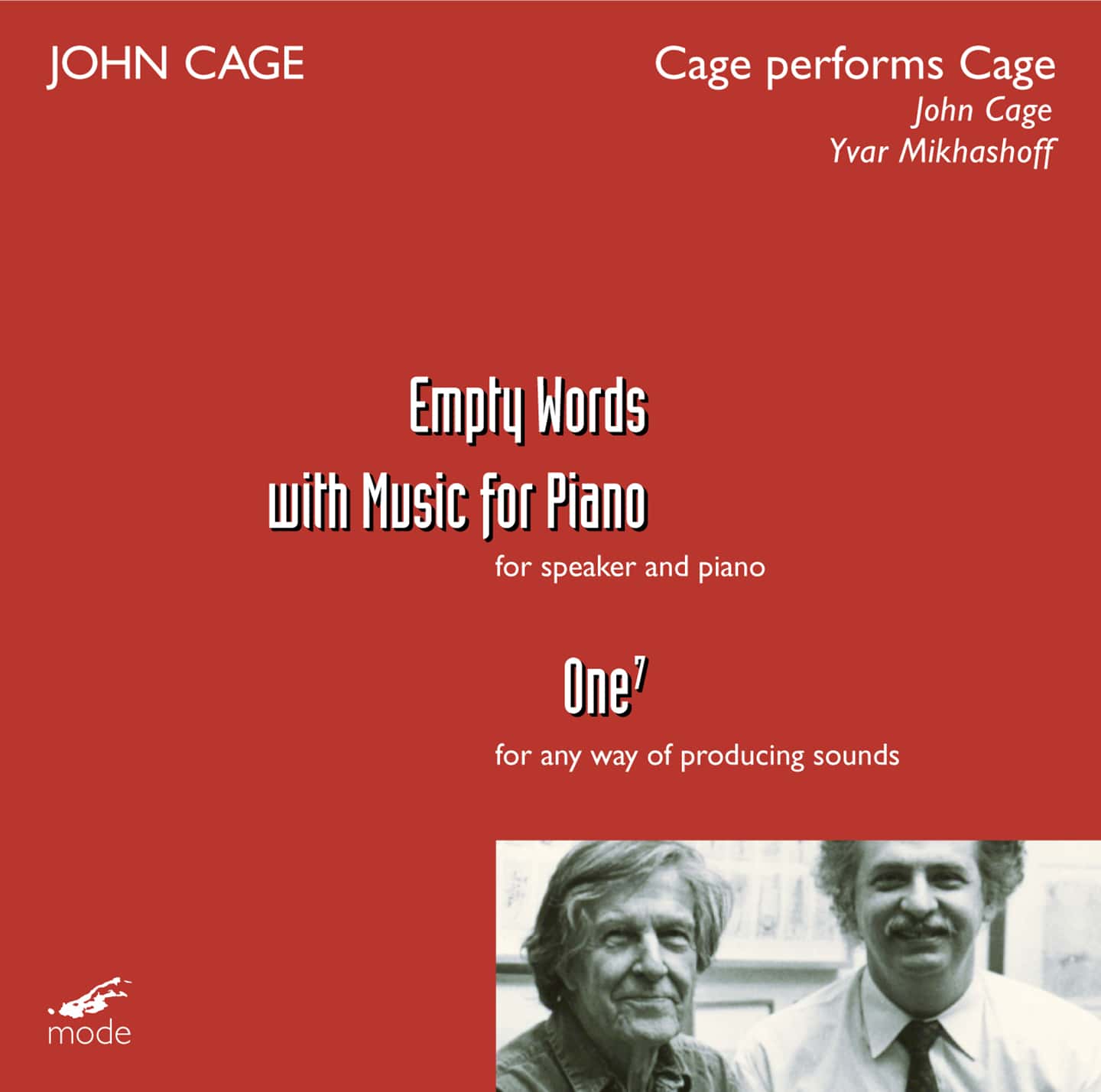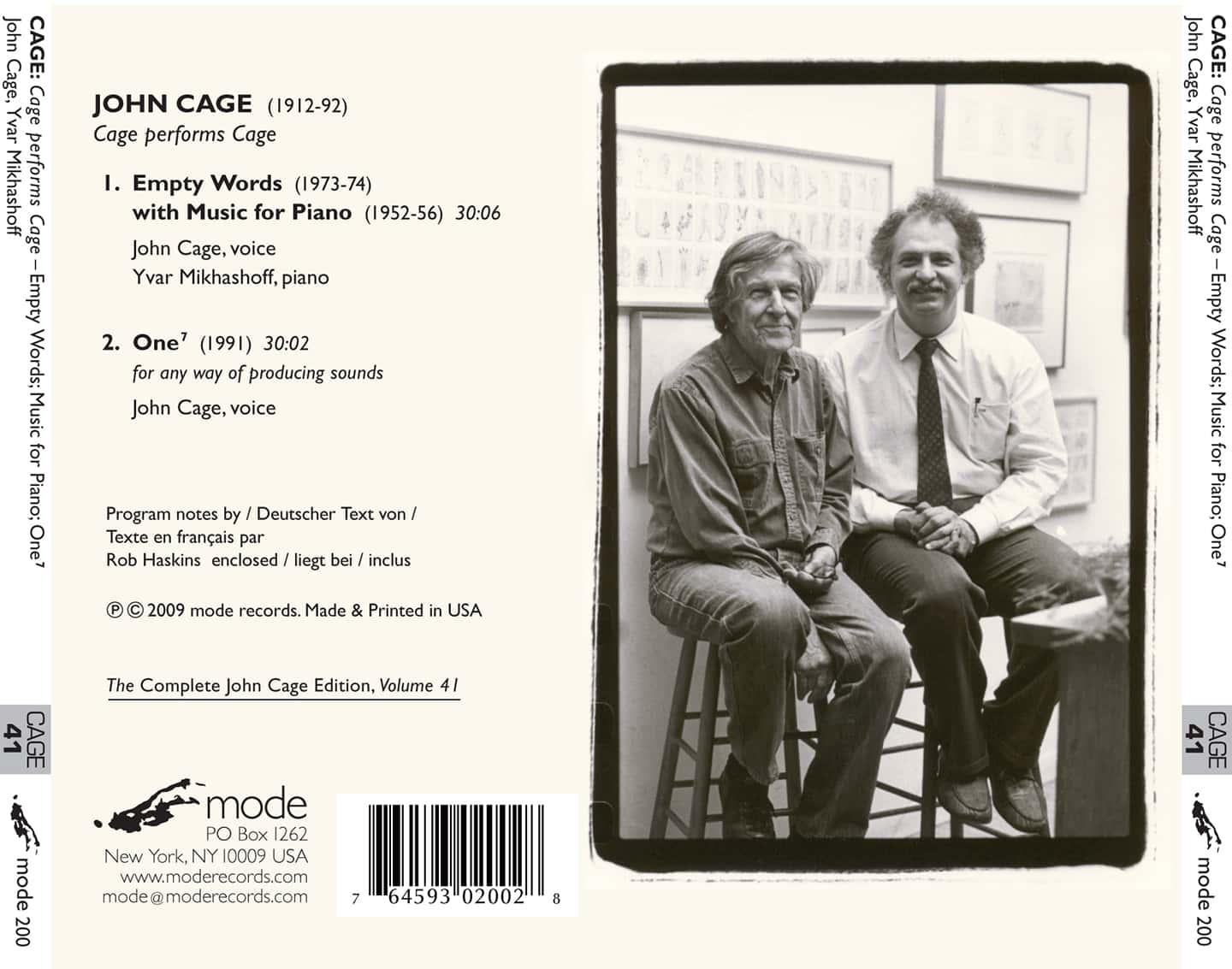Cage Edition 41-Cage Performs Cage
Empty Words (1973-74)
with Music for Piano (1952-56) 30:06
John Cage, voice
Yvar Mikhashoff, piano
One7 (1991) 30:02
for any way of producing sounds
John Cage, voice
Mode celebrates its 200th release with a special installment in its John Cage Edition – works performed by John Cage himself, released for the first time.
These recordings were made in Buffalo, New York in April 1991. Cage and Mode Records were in Buffalo to work on the premiere of his Europera 5, which he wrote for Yvar Mikhashoff, a longtime collaborator and specialist in New Music.
Cage and Mikhashoff had performed this special duet of Empty Words simultaneous with Music for Piano in concert several times, and decided to make this recording, without an audience, especially for Mode.
The single sounds of Music for Piano, many of them quiet, make for a beautiful counterpoint with the mysterious and somewhat lonesome voice of the elderly Cage.
As part of the events surrounding Europera 5, Cage gave a performance of the solo piece One7, recorded in a live performance here.
Like most of the other Number Pieces, One7 is written in what Cage called time brackets – flexible measures whose start times and end times are specified. In this work, the performer has more freedom in that Cage gives no specific content for these time brackets, but rather a series of 10 numbers from 1 to 12 (1 and 10 do not appear) which represent sounds that performer chooses himself.
Liner notes by Rob Haskins.
Reviews
John Cage
Cage Performs Cage
Empty Words with Music for Piano / One7
Mode 200
This latest installment – the 41st – in Mode’s Cage Edition features two of the last recordings the composer made, at SUNY Buffalo in 1991, the year before he died. The first finds him in performing a 30-minute extract from Empty Words (1973-74) – presumably from the work’s final section, in which there’s little left of Henry David Thoreau’s text except for isolated letters – simultaneously with Music for Piano (which one?) (1952-56), performed by Yvar Mikhashoff. For once, Mode’s liners, courtesy Rob Haskins, aren’t as informative as they might be – details about Mikhashoff’s construction and performance practice for this piece would not have gone amiss. It’s a (surprisingly?) musical affair, with both men picking up each other’s pitches more than you might expect, Cage singing more than speaking, stringing together his disjointed consonants into a kind of ultraminimal folk song from some hitherto undiscovered country.
1991’s One7, performed in a version for solo voice, is one of Cage’s most austere compositions, calling for just ten different sounds (not ten in total! that’s Futatsu…) located according to the time bracket procedure common to all the number pieces: the brackets indicate start and end times for each event, but leave the performer free to choose exactly when to begin each sound, and how long to make it last. There’s plenty of space between Cage’s isolated gurgles and bleats (and unlike Rob Haskins, I find the half dozen cries of “ka!” neither shocking nor “genuinely terrifying”) for the mind to wander (if the mind wanders, let it) and sounds of the outside world to come drifting in.
— Dan Warburton, www.paristransatlantic.com, May 2009


